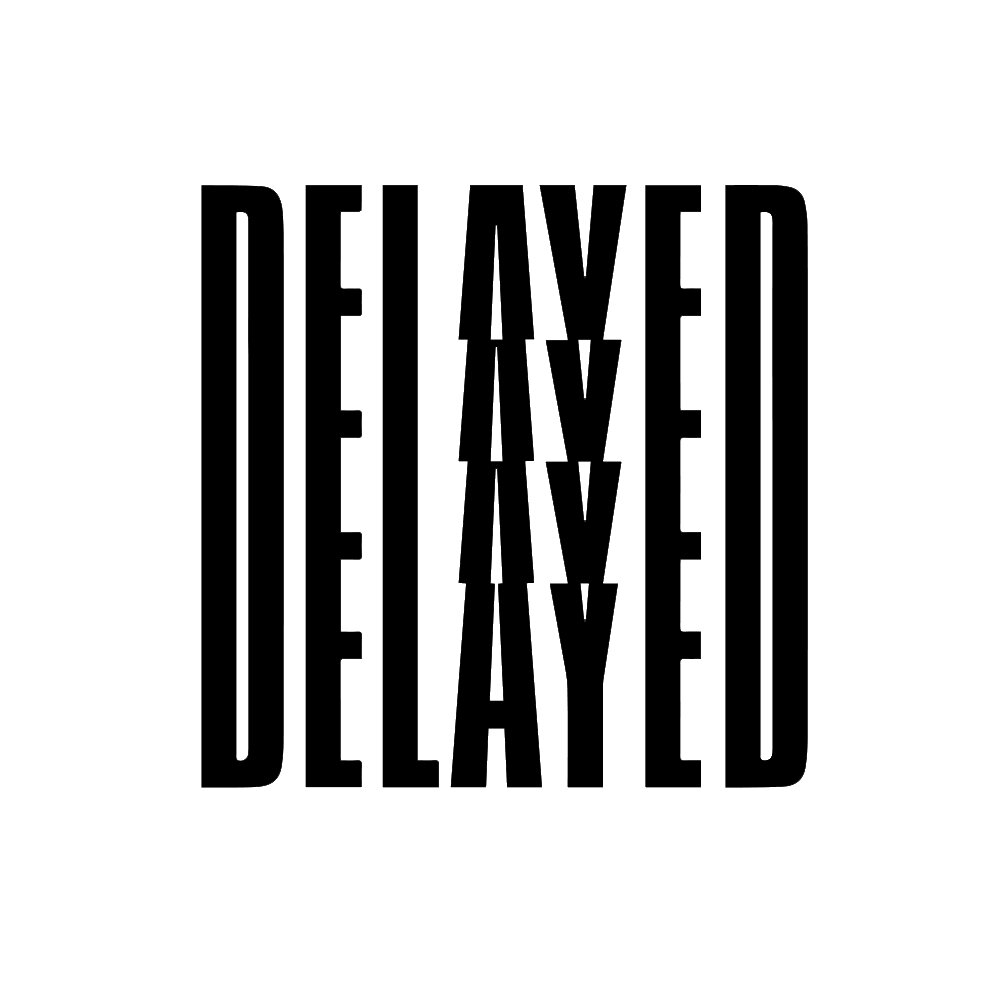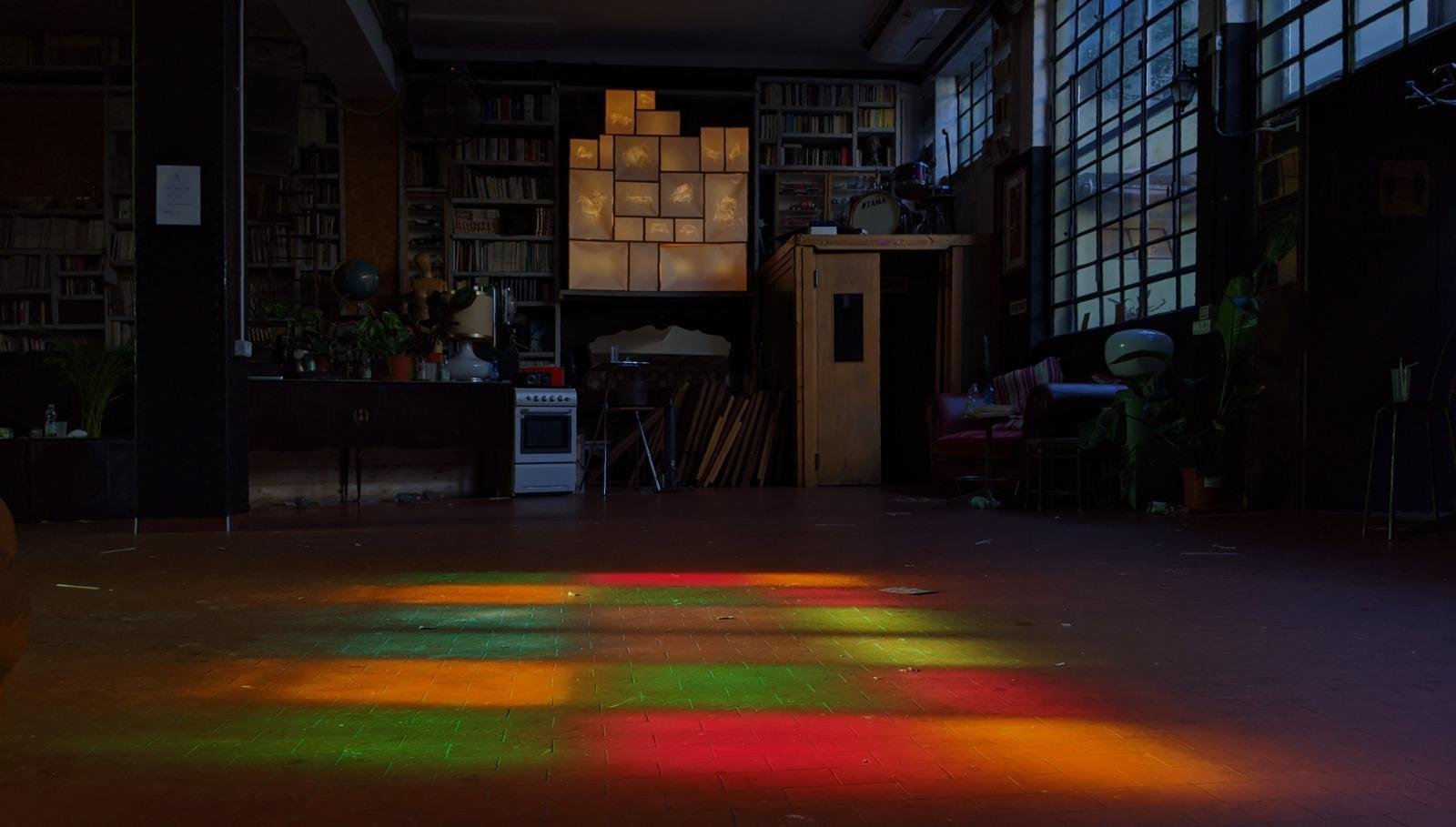Interview with the Acquario collective
There's a personal story behind this interview, so bear with me. It was a late night, or rather, an early morning when an Italian friend of mine shared a mix on Soundcloud to accompany the final hours of the night. It was a mix by the Milanese collective Acquario, completely unfamiliar to me at the time. I found myself returning to that mix time and time again, and the more I heard about the collective behind it, the more intrigued I became - and decided to make a trip to Milan and find out.
Acquario, with its residents Viels, Dixie, Münch, Podbielski, and Outburst Knobs, seemed to be a haven of community and high-quality techno. Artists mentioned it as one of their favourite places to play, praising its special atmosphere. The events are hosted at a place called Masada in the suburbs of Milan. Masada is not what one initially imagines of a techno event space: a big bookshelf full of literature, cosy sofas in the room, and the bright Italian afternoon sun shining through colourful windows. Visual Artist Mattafunk creates a special mapping on the bookshelves that have a high impact on the atmosphere.
When I entered Masada that afternoon F-ON played an impeccable opening set and it became instantly clear to me that this is an experience of electronic music I was missing. It emphasized community, quality, and moved away from the dark corners, fast pace and uniform black outfits associated with the scene. The strong bond among the regular visitors was palpable, and as a stranger, I was warmly welcomed into their arms - it felt very intimate. I heard guests express how important the community and the music's high quality were to them and that they came from further away to join.
It was an exceptional day for many. Claudio PRC, one of the Acquario regulars, delivered an outstanding 5-hour set, and the party continued with exhilarating back-to-back sets by the residents in the sister location, Amelia. It was a joyride, amplified by the explosive drum insertions of Viel’s 909. The warehouse had a larger appeal, but the techno sofas, affectionately known as "technodivani," were not missing either. Although I didn't stay until the end of the night, the memories of that evening still give me goosebumps, and I cherish the connections I made on the dancefloor. Reaffirmed that inclusion is not just some pamphlet you stick on your club entrance- inclusion is created by each and everyone in space. It’s not something we consume, but something we give.
That day and night were special, but not surprising, as Acquario consistently puts effort into delivering this level of quality, earning a high reputation among deep techno enthusiasts. This was reason enough to meet with the collective and discuss their ethos and the immersive world of Acquario. As a very special treat, we can share Claudio PRC's 5-hour DJ Set from that day—a true journey in Claudio fashion that confirms his status as one of the most interesting and thoughtful DJs of our time. I write this with absolute gratitude, acknowledging the commitment and sense of community I witnessed there, and eagerly anticipating my return to dance next to the bookshelf on another afternoon. Hopefully, the mix and interview give a sense of that special day.
Hi all, I’m very excited to finally do this interview with you as a collective. I have heard so much about your contribution to the scene in Italy and enjoyed many of your podcasts.Acquario was born in the cultural association of Masada, in Milano. Could you tell us a bit about how it all started in 2015?
We started as an enthusiastic group of friends partying together back in 2013. We discovered Masada attending some of their first events in 2014, at the time the venue had just opened and they started to throw small concerts, afterparties, lectures and courses. We immediately fell in love with the energy of the place, it was electric and it was clear that something special was about to start.
Some of us started to work there in the art direction, communication and technical management of the venue as well as playing records at their intimate afterparties, a big family was born and the identity of the place was taking shape so we were asked to start the project.
How did you come up with the name “Acquario”?
It just came out pretty randomly from a brainstorming word game and we thought it fitted pretty well with the concept.
With music, especially Techno, becoming increasingly commercialised and events becoming multimedia spectacles, how did the existence of cultural associations such as Masada in Milan help to bring your idea to life?
The idea was to throw intimate parties with a home feeling and a strong community. A cultural association is the best form to do that in Italy precisely because all those things are inherent to their own nature. The main target is not to make money, but to sustain all the projects involved in the association and any income is shared across the whole community. This aspect as well as the small dimension of the venue and a complete trust from the owners allowed us to untie ourselves from any commercial aspect. The association is open to everyone but to join any event a subscription process is required by law which in a way helps to guarantee a deeper interest and involvement in our activities.
At Delayed we are fascinated by the impact and the necessity of communities and collectives like yours. They can create a feeling of home and connection - not only for the organisers but also for the visitors. How do you plan, brainstorm and take decisions together that benefit that feeling and vibe? What are no-gos?
Although we are six heads taking operative decisions, we always take into consideration suggestions and feedback from the crowd. In the end, this is something we build all together and a lot of other people are involved on the day of the event. The goal has always been to make everyone feel part of the project and evoke a common sense of belonging. When programming the season we make sure to keep a good balance among local artists, emerging talents and friends as well as well-known ones. Attention to the vibe was for sure the choice of keeping a proper cadency also in terms of enough time interval in between the parties. An absolute rule is to keep things to have fun, ourselves first.
When I joined the event in April it became apparent that you draw a crowd far beyond Milan and that also it seems a special event to many of the artists playing. What are some of the most important “ingredients” that lead to that?
Through the years, we always kept the international scene in sight, travelling, meeting and engaging with people as well as connecting with collectives with a similar taste and attitude as ours. We always put a lot of effort into welcoming artists and visitors in the warmest way possible, seeking to create a natural and genuine interaction with them, focusing on the good outcome of the party but most important in a direct and natural exchange with people. Masada itself is a unique location, very different from a typical club but more like a big and cosy living room, which contributes to the easygoing atmosphere among performers and the crowd. We always encouraged our guests to play long sets, usually at least 4 hours, which is something that they can’t do anywhere and it contributes to making them feel free to enjoy and express themselves.
For the people that don’t know Acquario yet or didn’t have the chance to attend one of the events, I would love to speak a bit more about the atmosphere and curation. It says Acquario is about “getting lost for hours and hours between slow and wild movements, sound and harmonies from the abyss”. Can you elaborate a bit more on that notion of “getting lost”?
We think every good party aims to build a safe space and environment, creating a different dimension for the people to just enjoy the moment of the here and now by shifting the perception of time and, why not, losing themselves in a parallel habitat. The word Acquario resonates with water, an element in which the experience of the senses is skewed. Time is dilated also by the 10-hour day-to-night format (or 16 hours if the party continues at the other venue, Amelia) as well as by the lengthy performances of the acts. Talking about space curation, Masada is a cosy place that has a very strong identity itself in terms of furniture and space curation, so we thought that the best thing to do about it was not to add something but to distort some elements which were already present. That’s why we asked our visual artist Mattafunk to intervene on the bookshelf, making it move, pulse and melt with the music.
Acquario publishes some of the sets that were played but hosts also a podcast series named Immersioni that is separately recorded. How do you differentiate between the two?
Together with the rest of the project, the Immersioni podcast series got its start with the same objective of building a platform for excellent music, whether it came from established artists or newcomers. Although we still think that experiencing things as they happen is the best way of course to live them, we do occasionally upload sets performed at Acquario when they hold a special memory from the party.
The collective has a good amount of resident DJs who all bring something unique, how do their different styles play a role in the whole?
Yes, we are five residents and everyone is pretty flexible. Indeed every individual fits better in certain moments of the party, but we believe that being a resident and adapting to different moods and energy levels is a great occasion to grow as DJs and every moment of the day is interesting for different reasons. In the end, everyone contributes with his style and flow to a coherent, shared vision.
For the artists that are invited to the sessions, what other qualities are important other than excellence in their field of deep techno?
The ability to feel the energy in the room, modulate and be sensitive to the dancefloor are the most vital qualities for the outcome of the party. Technical skills are important, but flow and empathy are crucial.
What hopes do you have for Acquario and the scene in Milan in the future?
We’d like to continue growing the community and taking care of it, also by releasing music on a label in the future. At the same time, we are happy to see more and more enthusiastic quality realities growing up in Milan.


